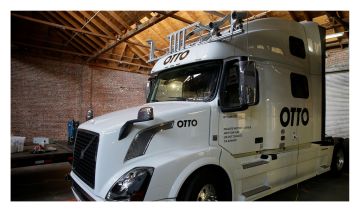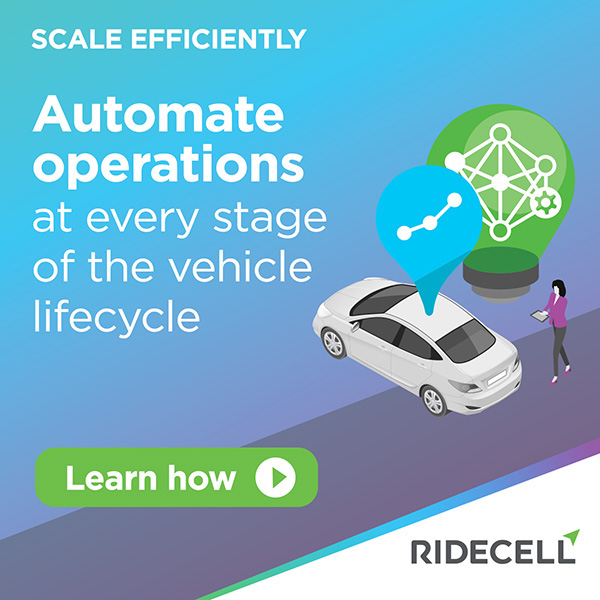
Imagine you are driving on a highway late at night when a big-rig truck closes in behind you. You relax because it is keeping a safe distance and seems to be obeying the speed limit. Now imagine that truck is driving itself.
Despite Silicon Valley’s enthusiasm for self-driving cars, it could be years before there are many of them on the road. But autonomous 18-wheelers? One start-up is betting that is a different matter.
That start-up is Otto, led by 15 former Google employees, including eight engineers.
Among its staff members are major figures from Google’s self-driving car and maps projects, and it is aiming at the long-haul freeway driving that is the bread and butter of the commercial trucking industry.
The engineers think that automating trucks rather than passenger vehicles could be more palatable financially and to regulators. Nationally, trucks drive 5.6 percent of all vehicle miles and are responsible for 9.5 percent of highway fatalities, according to Department of Transportation data.
Adding self-driving technology — at least as it stands now — into regular passenger cars could make them absurdly expensive for anyone without the cash of a Silicon Valley mogul. Until recently, the laser sensor used on the Google car project cost $75,000.
Those costs are coming down, but it will be some time before they have a realistic price for consumers. But a new, big tractor-trailer truck can easily cost more than $150,000, so the added cost of robotic features could make more sense.
In addition, it could make trucking more efficient, allowing, for example, a human driver to rest in the sleeper cabin while the truck takes the wheel.
Still, automating commercial driving is controversial and — potentially — a job killer.
There are more than three million truck drivers in the United States, according to the American Trucking Associations, and about one in every 15 workers in the country is employed in the trucking business.
There is concern that if commercial trucking is completely automated, it would be economically devastating for small towns in America that thrive from supporting the long-haul trucking industry.
“The removal of truckers from freeways will have an effect on today’s towns similar to the effects the freeways themselves had on towns decades ago that had sprung up around bypassed stretches of early highways,” wrote Scott Santens, an independent researcher, in a blog post last year.
Autonomous vehicles have in recent years become one of the tech industry’s favorite projects. Uber sees them as a way to stop dealing with its pesky drivers. Tesla, along with other car manufacturers, sees autonomous technology as an important safety feature to help human drivers.
Even Apple is thought to be working on some sort of self-driving car tech.
Google, in particular, has aggressively advocated and developed autonomous vehicle tech, and its self-driving cars are regularly seen on Bay Area roads. The company also announced a deal earlier this month with Fiat Chrysler to install its technology in a fleet of minivans.
Since the Google car and map veterans, Anthony Levandowski and Lior Ron, founded Otto in January, the company has expanded to 41 employees and has been test-driving three Volvo trucks, logging in more than 10,000 miles.
Read more of the original article in The New York Times.




